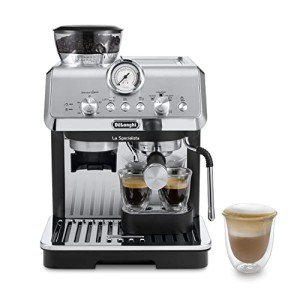Understanding Dual Boiler Espresso Machines: A Comprehensive Guide
Espresso is an art as much as it is a science. For coffee lovers and baristas alike, attaining the best shot of espresso demands precision and control over developing variables. Among the most reliable methods to achieve this precision is through using dual boiler espresso machines. This post explores the performance, advantages, and factors to consider of dual boiler espresso machines for both newbies and knowledgeable coffee aficionados.
What is a Dual Boiler Espresso Machine?
A dual boiler espresso machine features 2 different boilers: one for developing espresso and the other for steaming milk. This style enables the user to brew coffee and steam milk concurrently, achieving optimal temperature control for both processes. This is essential for producing lattes, coffees, and macchiatos, where both components are important.
Table 1: Key Components of Dual Boiler Espresso Machines
| Element | Function |
|---|---|
| Espresso Boiler | Warms water to the perfect developing temperature (around 190 ° F) |
| . Steam Boiler | Heats water to a greater temperature (around 250 ° F) for steaming milk. |
| PID Controller | Regulates the temperature level of the boilers for accuracy brewing. |
| Group Head | Where the coffee premises sit and hot water passes through. |
| Steam Wand | Delivers steam to froth milk. |
Benefits of Dual Boiler Espresso Machines
1. Simultaneous Brewing and Steaming
The most considerable benefit of dual boiler espresso machines is the capability to brew espresso and steam milk at the same time. This effectiveness is especially beneficial in busy environments, such as coffee shops, where speed and quality are vital.
2. Consistent Temperature Control
Dual boiler machines typically feature sophisticated PID (Proportional Integral Derivative) controllers that preserve a consistent temperature level throughout the brewing process. Consistency is important in espresso making to guarantee the very best extraction, therefore enhancing taste and aroma.
3. Modification and Versatility
With 2 different boilers, users can personalize the temperature level settings for both espresso developing and milk steaming. Heat Exchange Espresso Machines suggests various types of coffee, such as lighter or darker roasts, can be prepared completely to fit individual taste profiles.
4. Suitable for Advanced Techniques
For those interested in latte art or other innovative strategies, a dual boiler espresso machine provides the versatility to work with different milk textures while likewise extracting espresso. This versatility makes it an attractive alternative for baristas who desire to develop their skills.
5. Longevity and Durability
Many dual boiler machines are developed with high-quality materials developed for longevity. They are typically made from stainless steel and feature durable elements, making them a worthwhile investment for anyone major about coffee.
Drawbacks of Dual Boiler Espresso Machines
In spite of their many advantages, dual boiler machines can have some disadvantages:
- Higher Cost: Dual boiler machines tend to be costlier than their single-boiler counterparts, which may not be suitable for casual coffee drinkers.
- Size and Space: These machines may inhabit more counter top area than others, making them less ideal for small cooking areas.
Table 2: Key Considerations When Choosing a Dual Boiler Espresso Machine
| Factor to consider | Explanation |
|---|---|
| Budget | Dual boiler machines can range from ₤ 1,000 to over ₤ 4,000. |
| Size | Inspect your kitchen space before purchasing. |
| Brand Reputation | Search for well-reviewed brand names with excellent client support. |
| Features | Consider what functions are necessary (e.g., PID controller, volumetric options). |
| Upkeep | Some machines may require more routine maintenance than others. |
Frequently asked questions
1. Are dual boiler espresso machines worth the financial investment?
Yes, they deserve the investment for severe coffee enthusiasts or professional baristas who value precision in espresso extraction and milk steaming.
2. How do I maintain a dual boiler espresso machine?
Regular maintenance consists of descaling the machine, cleaning up the group head, and making sure that the steam wand is without milk residue. Consult the maker's manual for particular standards.
3. Can I use a dual boiler espresso machine for other brewing techniques?
Normally, dual boiler machines are developed mainly for espresso. However, they can typically brew quality drip coffee and other designs with the best settings and adjustments.
4. What brands are understood for their dual boiler machines?
Some reliable brand names include La Spaziale, Breville, and ECM. Italian Espresso Machines has its own special functions and prices.
5. What is White Espresso Machines lifespan of a dual boiler espresso machine?
With appropriate care and upkeep, a dual boiler machine can last over a decade, making it a long-term investment for coffee enthusiasts.
Dual boiler espresso machines represent the pinnacle of espresso-making technology, combining art and science into one compact gadget. While they need a greater initial investment and more counter top space, the benefits they provide-- such as simultaneous developing and steaming, precise temperature level control, and resilience-- make them perfect for serious coffee lovers. Understanding the workings, benefits, and considerations for these machines will enable customers to make educated choices and raise their coffee brewing experience. Whether at home or in a busy coffee shop, a dual boiler machine can truly improve the art of espresso.

